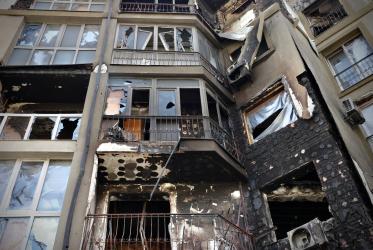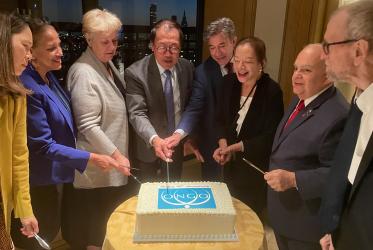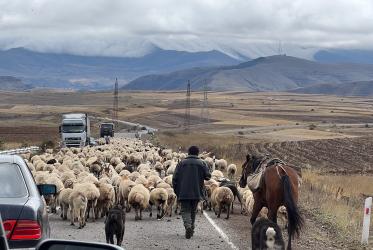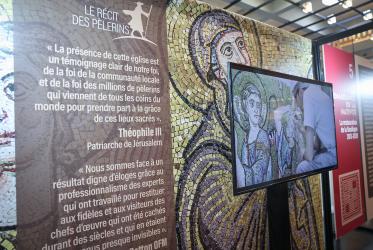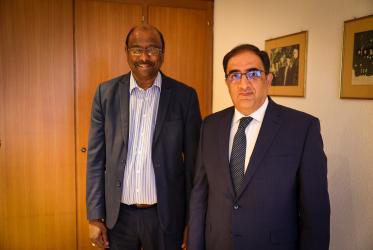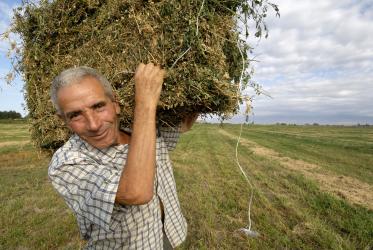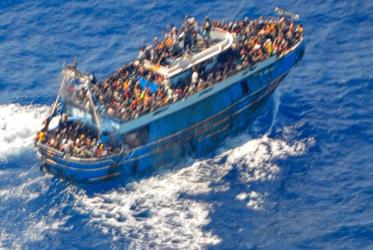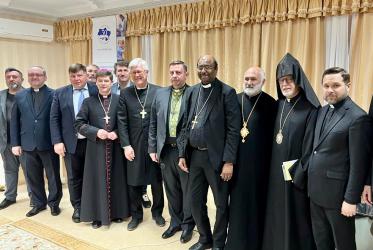Displaying 1 - 20 of 376
WCC delegation witnesses Azerbaijani forces shelling of Armenian enclave
25 September 2023
"A world free from nuclear weapons is possible"
11 September 2023
WCC anticipating opening of “Bethlehem Reborn”
11 September 2023
WCC delegation visits Ukraine
10 May 2023


